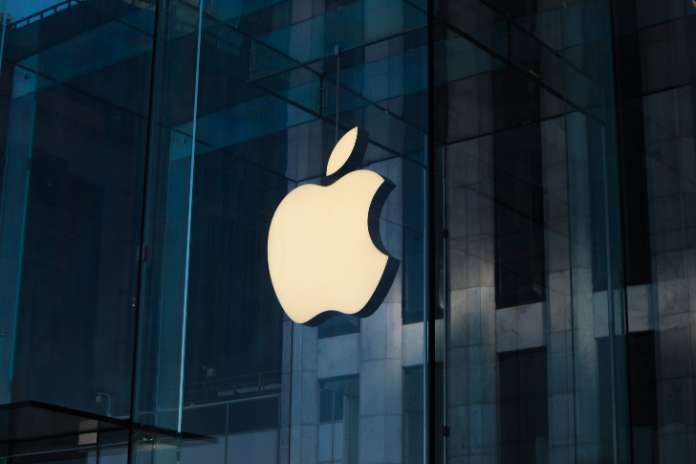The Apple stock performance has continued to show strength, even amid tepid demand for the new AI-powered iPhone 16. While early sales and pre-order data suggest cautious consumer interest, Apple Inc. (NASDAQ:AAPL) shares have maintained a strong rally, gaining nearly 40% from April lows and just 2% off a record high hit in July. Investors appear unfazed by concerns over demand and are banking on Apple’s strong track record and potential for long-term growth.
Tepid AI iPhone Demand Hasn’t Dented Investor Confidence
The AI-enhanced iPhone 16, which went on sale this month, has seen mixed responses from consumers. Although the artificial intelligence features won’t be fully available until software updates roll out in October, early data on pre-orders and lead times have analysts cautioning against overly optimistic sales projections. However, this tepid consumer interest has yet to negatively impact the Apple stock performance significantly, as shares remain on an upward trajectory.
Many analysts expect the AI iPhone to drive an eventual upgrade cycle that will fuel Apple’s growth in the coming years. Jack Ablin, Chief Investment Officer at Cresset Wealth Advisors, believes that the less-than-anticipated iPhone launch will not be more than a “speed bump” for Apple, given its diversified revenue streams. “Apple has so many cylinders that support the stock, and if one of them trips up in the short term, others can keep going,” Ablin says.
Apple’s Strong Market Position Provides a Safe Haven
Apple’s continued stock repurchases and strong earnings growth contribute to its view as a “safe haven” among equities. Its steady performance through various economic cycles, coupled with consistent stock buybacks—such as the record-breaking buyback announced in May—bolster investor confidence. Unlike other tech giants like Microsoft (NASDAQ:MSFT), Alphabet (NASDAQ:GOOGL), and Amazon (NASDAQ:AMZN), Apple has not made heavy capital expenditures in AI development, avoiding scrutiny from investors who have begun questioning high AI-related costs.
Metrics compiled by Bloomberg highlight Apple’s favorable positioning in terms of quality, profitability, and momentum. The CBOE Apple VIX, which measures future stock volatility, is trending lower than its 10-year average, indicating market stability. However, these strengths come with challenges; Apple currently trades at around 31 times estimated earnings, more than 50% above its 10-year average and notably higher than the Nasdaq 100 Index’s multiple of 26. This premium valuation suggests that Apple stock performance could face headwinds if anticipated growth doesn’t materialize.
Potential Risks: Valuation and Slower Upgrade Cycle
One of the key risks to Apple stock performance is its high valuation. Apple’s price-to-earnings and price-to-sales ratios are near historic highs, implying that the stock may be richly valued given its recent revenue trends. Apple’s revenue has declined in five of the last seven quarters, and analysts project modest growth of 1.8% for its 2024 fiscal year, with expectations of accelerating to 7.9% in the following year. If the much-anticipated iPhone upgrade cycle fails to gain momentum, Apple’s share price could become vulnerable to a correction.
Additionally, the iPhone 16’s reception has been underwhelming. According to analysts, early indicators such as pre-order numbers and lead times suggest lower-than-expected demand. In a recent note, Morgan Stanley analysts acknowledged that these data points are “more negative than positive,” yet still lack the predictive power to determine the full upgrade cycle’s performance.
Bloomberg Intelligence’s survey also indicates potential headwinds for iPhone sales. Based on iPhone lead time tracking and survey data, the firm expects around 230 million iPhone units to be sold in fiscal 2025, representing only 3% growth—lower than previous forecasts of 5%. This tempered outlook could potentially affect revenue gains, which analyst Anurag Rana estimates may fall 200 basis points below consensus.
Investor Perspectives: Wait and Watch on AI Tools
While the current Apple stock performance is largely resilient, some investors advocate a cautious approach. Ed Egilinsky, Managing Director at Direxion Funds, advises monitoring the demand for the new iPhone closely, especially as its AI features are introduced. He underscores that, despite Apple’s market leadership and reputation as a defensive stock, it is not immune to downside risks due to its premium pricing and high market expectations.
“Apple certainly has a great business and it is one of the premier stocks in the market, but it is priced richly given its growth prospects,” Egilinsky notes. The sentiment implies that while investors may currently view Apple as a secure investment, they should remain aware of potential downside risks if growth expectations are not met.
The Bottom Line on Apple Stock Performance
Despite muted demand for the AI-powered iPhone 16, the Apple stock performance remains strong, buoyed by a mix of investor optimism, steady buybacks, and a long-term growth perspective. While the stock faces valuation and growth challenges, its diverse revenue streams and focus on innovation provide support. The coming months will be crucial in determining whether the anticipated upgrade cycle materializes and supports sustained growth for Apple’s stock.
For investors, Apple’s stability and potential for long-term growth offer a compelling investment case, even as they keep an eye on key developments around its AI capabilities and market performance.
Featured Image: Unsplash © Laurenz Heymann









